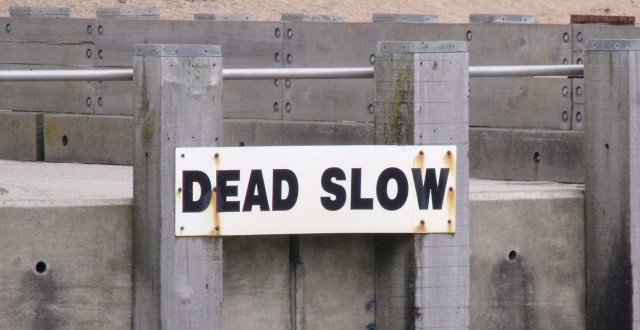
You can now start filing public comments on the Federal Communications Commission plan to eliminate net neutrality rules.
The FCC today opened the docket, titled "Restoring Internet Freedom." Clicking "New Filing" takes you to a form for uploading documents, while an "Express" filing lets you write a brief comment without uploading a document. FCC Chairman Ajit Pai also released the draft text of a Notice of Proposed Rulemaking (NPRM) that will be voted on at the May 18 FCC meeting. There will be another three months for public comments after that preliminary vote, and the FCC will make a final decision sometime after that.
It's already pretty clear where this is going, though: Pai intends to overturn the 2015 net neutrality order, and the only question is whether anything will replace it. While previous FCC leaders decided that home Internet providers and mobile carriers shouldn't be allowed to throttle websites and online services, Pai's proposal suggests that the current ban on throttling hurts customers.
The existing no-throttling rule "bans the impairment or degradation of lawful Internet traffic or use of a non-harmful device, subject to reasonable network management practices," the NPRM says. "We seek comment on whether this rule is still necessary, particularly for smaller providers. How does the rule benefit consumers, and what are its costs? When is 'throttling' harmful to consumers? Does the no-throttling rule prevent providers from offering broadband Internet access service with differentiated prioritization that benefits consumers? Does the no-throttling rule harm latency-sensitive applications and content?"
Pai's NPRM presents no evidence that the no-throttling rule hurts customers, but claims that the current rules were passed without evidence. The document seeks comment about whether the FCC should have any rules on blocking, throttling, and paid prioritization, but strongly suggests that such rules aren't necessary.
"Despite virtually no quantifiable evidence of consumer harm, the commission nevertheless determined that it needed bright-line rules banning three specific practices by providers of both fixed and mobile broadband Internet access service: blocking, throttling, and paid prioritization," Pai's draft proposal says.
4 million comments last time around
The FCC received 4 million comments, most supporting strict net neutrality rules, prior to issuing the rules in February 2015. But the number of comments on each side isn't that important, senior FCC officials said in a call with reporters today. It's not a public opinion poll where the most votes wins–what matters are the quality of the arguments, the facts entered in the record, and legal arguments, they said.
While people can put submissions into the record regarding the draft version of the NPRM starting today, the official comment cycle on the questions and proposals in the NPRM won't begun until after the May 18 vote. The deadline for initial comments will be July 17, and the deadline for reply comments will be August 16, the FCC told Ars.
The FCC's comment website crashed multiple times during the last net neutrality debate, forcing the commission to extend the deadline, but the site and FCC's back-end systems have undergone significant upgrades since then.
Arguments in favor of strict net neutrality rules aren't likely to be given much weight by the FCC's Republican leadership. Pai has already said he intends to reverse his Democratic predecessor's classification of ISPs as common carriers under Title II of the Communications Act, which in turn would wipe out the core net neutrality rules and other requirements. When the FCC tried to impose net neutrality rules without using Title II in 2010, the rules were struck down in court. The commission's net neutrality rules were finally able to withstand a court challenge after the FCC invoked its Title II authority.
The FCC will seek comment on whether there are any possible "formulations of a no-blocking rule" that can be legally enacted without the Title II common carrier designation.
The NPRM also suggests that customers are being harmed by the ban on ISPs charging websites and other online services for faster access to consumers. "Is there a risk that banning paid prioritization suppresses pro-competitive activity?" the NPRM asks. "For example, could allowing paid prioritization give Internet service providers a supplemental revenue stream that would enable them to offer lower-priced broadband Internet access service to end-users?"
The NPRM asks whether paid prioritization could "enable certain critical information, such as consumers’ health care vital signs that are being monitored remotely, to be transmitted more efficiently or reliably." But the document fails to mention that the existing rules have an exception that lets ISPs sell isolated network capacity for telemedicine services.
The FCC also asks whether it should keep rules that require ISPs to make greater disclosures about hidden fees and data caps. The FCC seems to think the broadband market is so competitive that this isn't necessary. "We seek comment on whether the additional reporting obligations from that rule remains necessary in today’s competitive broadband marketplace," the NPRM says. Pai has already exempted ISPs with 250,000 or fewer subscribers from these rules.
An FCC official acknowledged that it's highly likely the commission will be sued after it makes changes to net neutrality rules, but noted that courts have generally deferred to the FCC on whether Internet providers should or should not be classified as common carriers.
reader comments
176